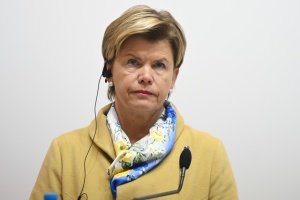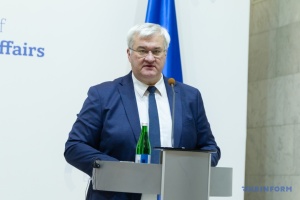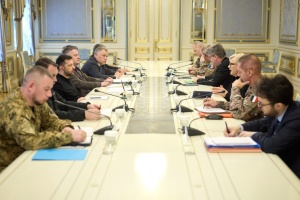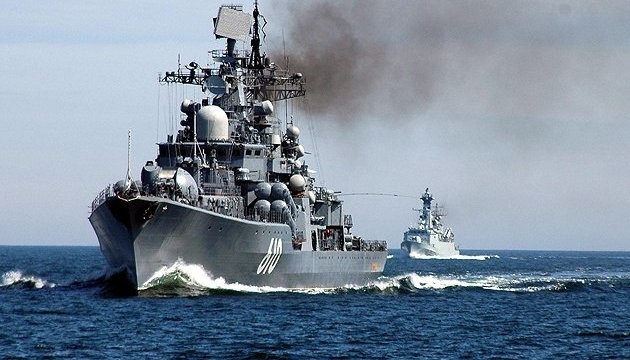
How Russia violates security in Azov-Black Sea region
The illegal actions of the occupying power in Crimea since 2014 have been the main factor in the continuous deterioration of the security situation in the Azov and Black Sea region, which is characterized by instability and a tendency to worsen. The rise in tension was caused by the Russian Federation's efforts to legitimize the attempted annexation of the peninsula and to assert its dominance in the maritime areas. The prospect of the possible transformation of the Sea of Azov and the Black Sea into "Russian lakes" is a direct consequence of the occupation of Crimea.
This is how Anton Korynevych, Permanent Representative of the President of Ukraine in the Autonomous Republic of Crimea, started his speech at the OSCE Forum for Security Cooperation during the latest online meeting of the OSCE Forum for Security Cooperation. The Ukrainian delegation and partner countries constantly raise the issue of the ongoing occupation of Crimea at meetings of both policy-making bodies of the Organization for Security and Cooperation in Europe - the Permanent Council and the Forum for Security Cooperation. However, for the first time, a separate session of the Forum's security dialogue was devoted to the situation in the Azov-Black Sea region. This was achieved primarily due to Ukraine's chairmanship of the Forum, which lasts from April to August.
Ukrinform has already reported how the Russian delegation to the OSCE tried to block the "inappropriate" speeches of the two main speakers at the meeting - independent British expert James Sherr and Permanent Representative of the President of Ukraine in the Autonomous Republic of Crimea Anton Korynevych.
Ukrinform proposes examining the main theses of the speech of the speaker from Ukraine at the virtual meeting of the OSCE Forum for Security Cooperation, which was closed to journalists.
CURRENT THREATS TO SECURITY IN AZOV-BLACK SEA REGION
The challenges and threats to security in the Azov-Black Sea region can be summarized as follows:
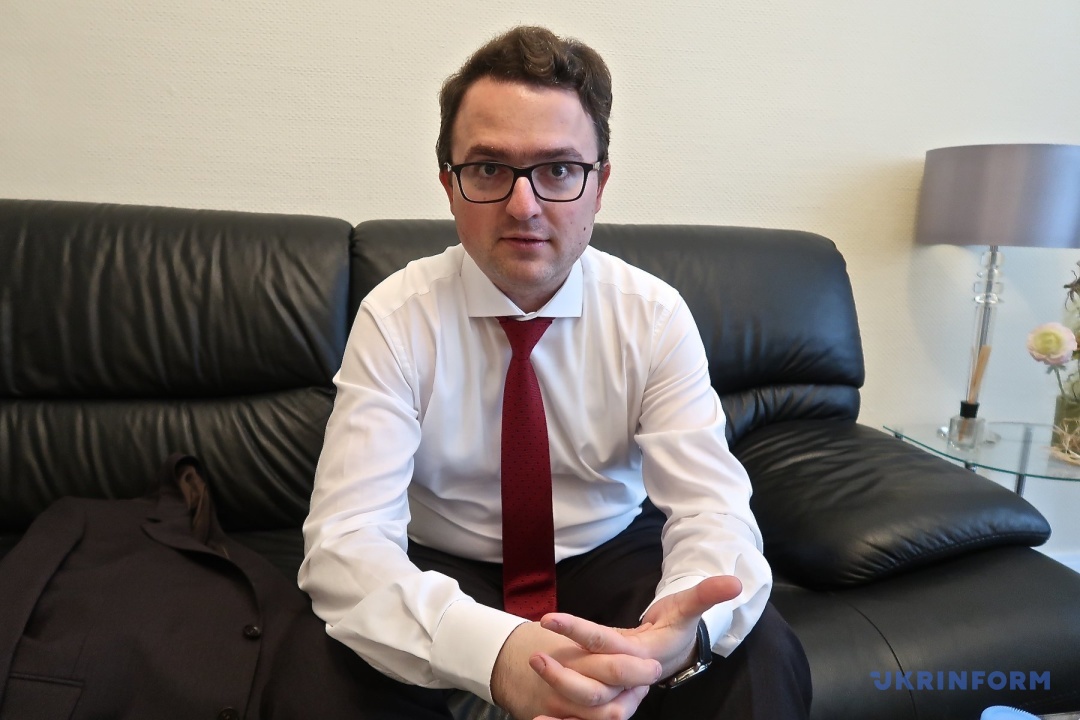
- the political sphere is characterized by Russia's attempt to overcome international isolation after the military invasion to Crimea by developing relations with individual Black Sea countries and influencing them in the form of "soft power," unlike the direct military aggression against Ukraine and Georgia with the occupation of parts of their territories;
- military direction is characterized by comprehensive militarization of Crimea from pre-school education to deployment of missile systems S-400, increasing and upgrading of the naval composition of the Russian Federation’s Black Sea Fleet which is equipped with cruise missiles "Caliber." The Russian Federation uses the peninsula as the main logistical base for Russian military operations in Syria, the increase in naval exercises and closure of maritime areas, including the exclusive maritime economic zone of Ukraine around the occupied Crimea. There are also signs of the reproduction of nuclear military facilities on the peninsula;
- the international legal sphere has been marked by the termination of the recognition of the powers of the International Fact-Finding Commission under Additional Protocol I to the Geneva Conventions; promotion by the Kremlin of Crimean collaborators abroad and involving of pro-Russian foreigners into activities on the peninsula; forced naturalization of the Crimean residents by the Russian Federation and deprivation of property rights of Ukrainian citizens and foreigners on the peninsula;
- the economic direction is characterized by the creation of artificial obstacles to free commercial navigation and endanger maritime transport in the Kerch Strait and the Sea of Azov as a result of the illegal construction of the so-called "Crimean Bridge" by the Russian Federation; the involvement of foreign vessels into illegal marine commercial transportation to the Crimean closed ports; increasing gas supplies via the Black Sea which creates an environmental hazard at the Black Sea depths saturated with hydrogen sulfide.
WHAT HAPPENS TO HUMAN RIGHTS
The issue of security in the Azov and Black Sea region is not strictly limited to a military component. No less important for understanding and assessment of the Russian hybrid war against Ukraine are large-scale and serious violations of international humanitarian law by the Russian Federation in the territory of the temporarily occupied Autonomous Republic of Crimea and the city of Sevastopol.

According to reports by a number of international organizations (OHCHR, OSCE ODIHR, Council of Europe), the human rights situation in the occupied Crimea has dramatically deteriorated. Reports confirm the existence of widespread abductions, enforced disappearances, tortures, politically motivated persecution on ethnic and religious grounds, and discrimination. The basic rights to freedom of expression, peaceful assembly, religion and education are being violated, the media are being persecuted and banned, the Ukrainian and Crimean Tatar identities are being destroyed, and illegal conscription to the Armed Forces of the Russian Federation is being conducted.
Many of these acts by the occupying power are classified as war crimes and crimes against humanity and are within the jurisdiction of the International Criminal Court.
HOW RUSSIA VIOLATES TREATY ON CONVENTIONAL ARMED FORCES IN EUROPE
Russia's occupation of Crimea has led to a drastic increase in the number of conventional weapons and military equipment in the Black Sea region exceeding the limitations proscribed by the Treaty on Conventional Armed Forces in Europe (CFE Treaty).
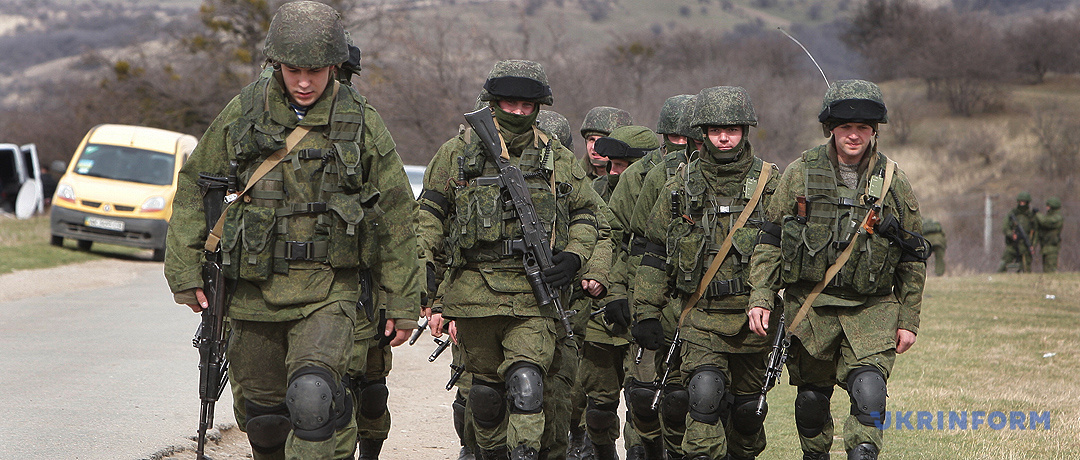
The long-range missile weapons on the Peninsula are capable of striking the entire southern part of Ukraine and the territories of neighboring countries. The security of the Black Sea littoral states, of which two are already affected by foreign aggression, are also at stake.
The occupied territories of Ukraine and Georgia had been turned into gray zones inaccessible for verification and inspection activities under the CFE Treaty, Open Skies Treaty, the Vienna Document on Confidence and Security Building Measures and other arms control and non-proliferation regimes. This state of affairs continues to erode military transparency, predictability and trust in the region.
WHAT THREATS COME FROM RUSSIAN MILITARY BASE "CRIMEA"
Dominating in the actions of the Russian Federation are exclusively military and political interests of the transformation of captured Crimea into a military base, along with the intentions of the Kremlin to spread expansion beyond the Black Sea.
The militarization of the peninsula was unleashed almost immediately after the illegal occupation of Crimea. It included, in particular, destabilizing transfers of weapons and military equipment, including nuclear capable aircraft and missiles, weapons, ammunition and military personnel to the territory of Ukraine.
The occupation and subsequent militarization of Crimea led to the expansion of the area of use of warships and military aircraft in the Black Sea region and far beyond in the entire Mediterranean basin. Thus, such activity has far-reaching consequences for security not only in the Black Sea area, but in the whole South Europe, as well as in the North Africa and the Middle East.
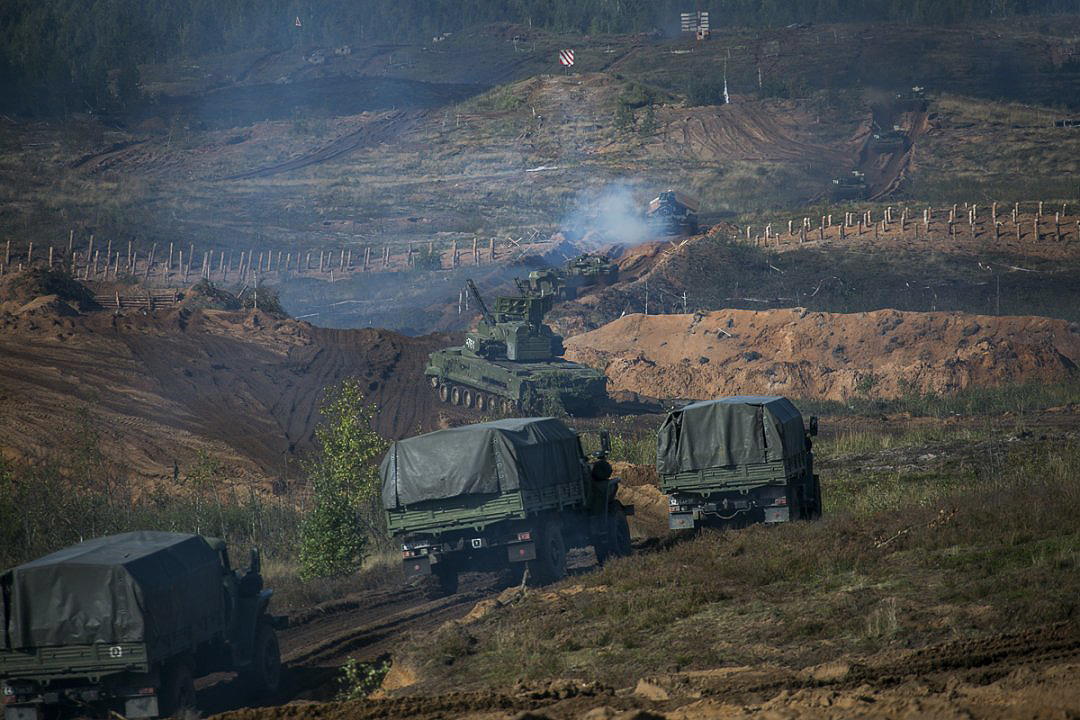
Multiple illegal military exercises conducted in Crimea and around it reflect aggressive military posture towards Ukraine and other Black Sea littoral states. Such exercises also entail considerable long-term negative environmental consequences in the region.
The Sea of Azov region has been also intensively militarized. The number of warships with their expansion to the whole territory of the Sea has significantly increased. The progressive militarization of the Sea of Azov has implications not only for maritime trade and supplies into Ukraine, but also poses an additional military threat to Ukraine and leads to escalation of security situation in the region.
The illegal construction of the Kerch Strait bridge has substantially contributed to this threat, in particular by facilitating further militarization of Crimea and involvement of additional maritime and other forces to the area under the pretext of protection of the bridge and its infrastructure.
WHAT RUSSIA'S DEPLOYMENT OF NUCLEAR FORCES IN CRIMEA MEANS
What is more alarming is that the occupying power is taking steps to renuclearize Crimea, in particular by deploying carriers and other means capable of delivering nuclear weapons, as well as by actively developing nuclear infrastructure on the peninsula.
Taking into account the strategic location of Crimea in the region, as well as Ukraine being part of the Treaty on the Non-Proliferation of Nuclear Weapons as a non-nuclear-weapon State, deployment of nuclear forces in Crimea constitutes a serious challenge to the existing non-proliferation regime and must meet due response by the international community.
UN AND OSCE EFFORTS IN COUNTERING MILITARIZATION OF CRIMEA
Given the current volatile security situation in the Black Sea and the Sea of Azov region and its possible far-reaching negative implications, the issue of the militarization of Crimea must be high on the agenda of all international organizations concerned, in particular the UN and the OSCE.
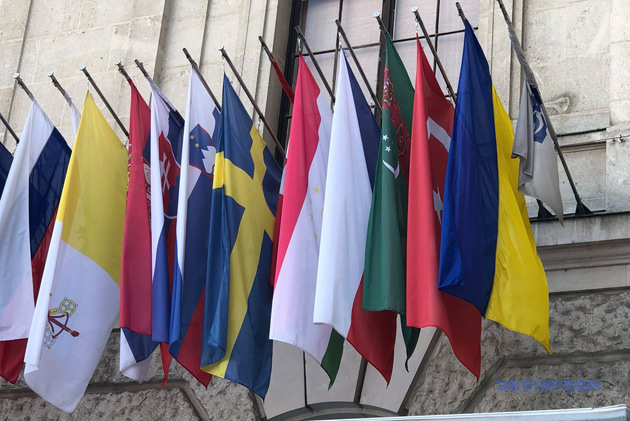
The international community should redouble its concerted actions to restore security and full compliance of international law, OSCE fundamental norms and principles in the Black Sea and the Sea of Azov region. These efforts must be based on full respect of the sovereignty and territorial integrity of states, refraining from the threat or use of force, non-intervention in internal affairs, fulfillment in good faith of obligations under international law.
Ukraine remains one of the main targets of Russian aggression, and Russia will not stop. The more Moscow talks about the desire for peace, the more the Kremlin prepares for war.
WHY OSCE SHOULD IMPLEMENT ITS MANDATE BOTH IN CRIMEA AND AT SEA
The OSCE can play a greater role in monitoring and responding to the degrading security and social and economic situation in the Sea of Azov and the Black Sea region.
The SMM has already confirmed the negative impact of the impediment of navigation on the social and economic well-being of Ukrainians residing in areas located on the coastline of the Sea of Azov. The SMM reports confirm that "delays and reduction in ships willing to navigate through the Kerch Strait have led to reduced business, including canceled contracts and an inability to acquire new contracts due to ongoing uncertainties" and increased costs of insurance policies. This monitoring is important and must continue on a daily basis.
The SMM is regularly denied access to the temporarily occupied areas in the southern Donetsk region adjacent to the Sea of Azov. This is an area of established supplies routes of weaponry and manpower to the conflict area.
We believe that more vigilance and reporting by the SMM are needed on activities related to the militarization of the occupied Crimea and adjacent territorial waters, the Sea of Azov and the Black Sea. The consequences of such destructive policy to the local population, security of Ukraine and environment should be also reflected in its reports. Amid constant infringement of the SMM mandate, the tool of distance monitoring is of particular relevance to this end.
Vasyl Korotkyi, Vienna

